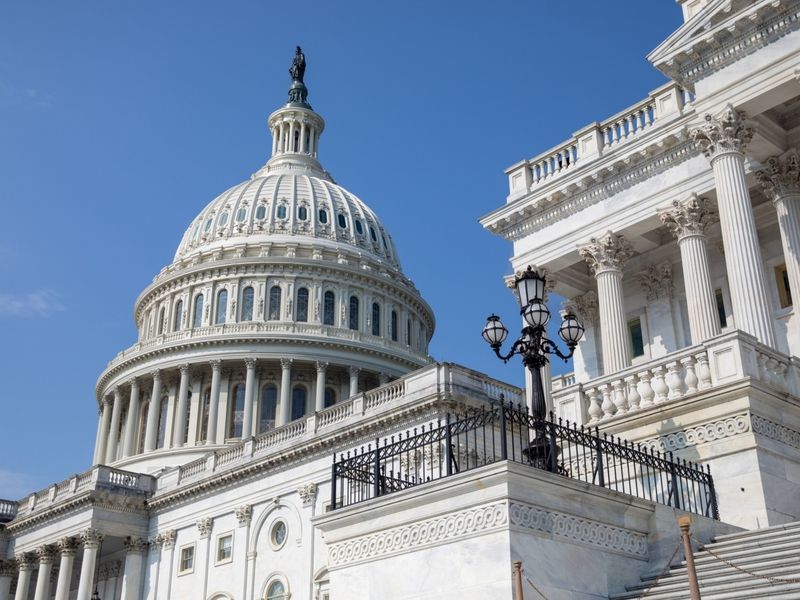
WASHINGTON — Top U.S. executives from 12 international automakers are urging the U.S. House of Representatives to support broader tax credits for electric vehicles in the Democrats’ $3.5 trillion reconciliation bill.
In a letter sent Thursday to House Speaker Nancy Pelosi, executives from automakers including American Honda Motor Co., Toyota Motor North America and Volkswagen Group of America called for “policies that offer incentives to all electric vehicles made by all American auto workers” and to oppose “policies that slow progress toward meeting our nation’s climate goals.”
The letter — which includes signatures from Hyundai Motor North America CEO Jose Muñoz and Subaru of America CEO Tom Doll — comes after the House Ways and Means Committee this month advanced a proposal that would give consumers an extra incentive to buy union-made EVs.
The proposal — led by Rep. Dan Kildee, D-Mich., and slated for inclusion in the reconciliation bill — would boost consumer tax credits to as much as $12,500 for EVs assembled in a factory represented by a labor union with U.S.-produced batteries. After five years, only EVs assembled in the U.S. would be eligible for the $7,500 base credit.
Sen. Debbie Stabenow, D-Mich., led an earlier proposal in the Senate that also would tie additional EV tax credits to vehicles assembled in unionized U.S. factories.
“We appreciate your support for tax credits that encourage more consumers to consider [EVs]. However, we are opposed to the proposed changes to the EV tax credit incentive in the House reconciliation bill that discriminates against American auto workers, limits consumer choice and prevents the administration from reaching President Biden’s goals on climate change,” the executives wrote in the letter.
The House proposal, as is, would provide an additional $4,500 for EVs assembled in U.S. factories represented by a labor union — a provision the auto executives called “discriminatory.”
“This would unfairly disadvantage American workers who have chosen not to join a union and produce more than half of all vehicles in the United States and the vast majority of American-made EVs,” the letter reads.
The American International Automobile Dealers Association, a group that represents more than 9,000 international nameplate dealers in the U.S., also urged House leaders to oppose the EV tax credit proposal in a separate letter sent Thursday.
The association, which launched an awareness campaign Monday to bring attention to the proposal’s potential employment and environmental consequences, said the policy would “pit American workers against one another and limit consumer choice.”
“Any policies that divide us, or prioritize some American auto workers above others, politicize what should be a shared mission,” AIADA CEO Cody Lusk wrote in the letter. “Congress should not be picking winners and losers among American workers.”
The UAW on Thursday urged Congress to pass the reconciliation bill with the “Kildee/Stabenow provision” on EV tax credits.
“By tying subsidies in the Kildee/Stabenow provision to make sure taxpayer funding goes to domestic auto and battery assembly, and to make sure that these jobs are good-paying union scale jobs, we protect our future,” UAW President Ray Curry said in a statement. “After all, these jobs of the future that replace traditional engine jobs need to provide the same middle-class wages and benefits that built our modern economy.”
Ford Motor Co., General Motors and Stellantis — whose workers are represented by the UAW — have praised the House proposal on EV tax credits. Others in the industry have called for broader incentives.
“The U.S. auto industry has committed billions to increase consumer use of green vehicles. You don’t reduce climate change by making over 90 percent of EVs ineligible to receive the credit,” said Jennifer Safavian, CEO of Autos Drive America, a group that represents the U.S. operations of international automakers.
The Alliance for Automotive Innovation, which represents most major automakers, said in a statement this month that it appreciates the House Ways and Means Committee’s work to expand EV tax credits by removing the per-manufacturer cap.
But to meet President Biden’s goal for zero-emission vehicles to make up 40 to 50 percent of all new vehicles sold in 2030, the alliance said, “We must ensure that incentives are applicable to all manufacturers, do not discriminate between companies and are widely available — thereby preserving choice for consumers as more EVs come to the market across all models and price points.”
The National Automobile Dealers Association, also this month, said it “supports tax credits to incentivize the purchase of EVs, but cannot support the bill in its current form.” NADA said it will continue to work with lawmakers to broaden the credits for every nameplate sold by its franchised dealer members.